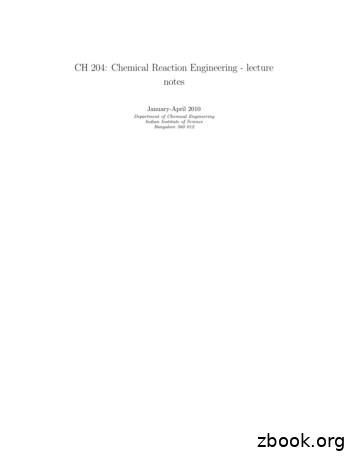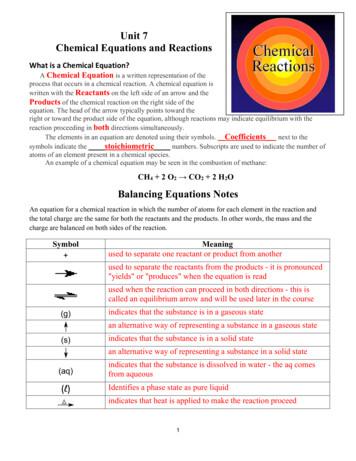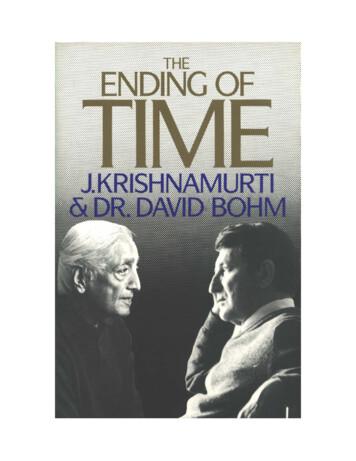Chapter 2 Section 3 Chemical Properties-PDF Free Download
Part One: Heir of Ash Chapter 1 Chapter 2 Chapter 3 Chapter 4 Chapter 5 Chapter 6 Chapter 7 Chapter 8 Chapter 9 Chapter 10 Chapter 11 Chapter 12 Chapter 13 Chapter 14 Chapter 15 Chapter 16 Chapter 17 Chapter 18 Chapter 19 Chapter 20 Chapter 21 Chapter 22 Chapter 23 Chapter 24 Chapter 25 Chapter 26 Chapter 27 Chapter 28 Chapter 29 Chapter 30 .
TO KILL A MOCKINGBIRD. Contents Dedication Epigraph Part One Chapter 1 Chapter 2 Chapter 3 Chapter 4 Chapter 5 Chapter 6 Chapter 7 Chapter 8 Chapter 9 Chapter 10 Chapter 11 Part Two Chapter 12 Chapter 13 Chapter 14 Chapter 15 Chapter 16 Chapter 17 Chapter 18. Chapter 19 Chapter 20 Chapter 21 Chapter 22 Chapter 23 Chapter 24 Chapter 25 Chapter 26
DEDICATION PART ONE Chapter 1 Chapter 2 Chapter 3 Chapter 4 Chapter 5 Chapter 6 Chapter 7 Chapter 8 Chapter 9 Chapter 10 Chapter 11 PART TWO Chapter 12 Chapter 13 Chapter 14 Chapter 15 Chapter 16 Chapter 17 Chapter 18 Chapter 19 Chapter 20 Chapter 21 Chapter 22 Chapter 23 .
Chemical Formulas and Equations continued How Are Chemical Formulas Used to Write Chemical Equations? Scientists use chemical equations to describe reac-tions. A chemical equation uses chemical symbols and formulas as a short way to show what happens in a chemical reaction. A chemical equation shows that atoms are only rearranged in a chemical .
Levenspiel (2004, p. iii) has given a concise and apt description of chemical reaction engineering (CRE): Chemical reaction engineering is that engineering activity concerned with the ex-ploitation of chemical reactions on a commercial scale. Its goal is the successful design and operation of chemical reactors, and probably more than any other ac-File Size: 344KBPage Count: 56Explore further(PDF) Chemical Reaction Engineering, 3rd Edition by Octave .www.academia.edu(PDF) Elements of Chemical Reaction Engineering Fifth .www.academia.eduIntroduction to Chemical Engineering: Chemical Reaction .ethz.chFundamentals of Chemical Reactor Theory1www.seas.ucla.eduRecommended to you b
About the husband’s secret. Dedication Epigraph Pandora Monday Chapter One Chapter Two Chapter Three Chapter Four Chapter Five Tuesday Chapter Six Chapter Seven. Chapter Eight Chapter Nine Chapter Ten Chapter Eleven Chapter Twelve Chapter Thirteen Chapter Fourteen Chapter Fifteen Chapter Sixteen Chapter Seventeen Chapter Eighteen
18.4 35 18.5 35 I Solutions to Applying the Concepts Questions II Answers to End-of-chapter Conceptual Questions Chapter 1 37 Chapter 2 38 Chapter 3 39 Chapter 4 40 Chapter 5 43 Chapter 6 45 Chapter 7 46 Chapter 8 47 Chapter 9 50 Chapter 10 52 Chapter 11 55 Chapter 12 56 Chapter 13 57 Chapter 14 61 Chapter 15 62 Chapter 16 63 Chapter 17 65 .
HUNTER. Special thanks to Kate Cary. Contents Cover Title Page Prologue Chapter 1 Chapter 2 Chapter 3 Chapter 4 Chapter 5 Chapter 6 Chapter 7 Chapter 8 Chapter 9 Chapter 10 Chapter 11 Chapter 12 Chapter 13 Chapter 14 Chapter 15 Chapter 16 Chapter 17 Chapter
Chapter 3 Chapter 4 Chapter 5 Chapter 6 Chapter 7 Chapter 8 Chapter 9 Chapter 10 Chapter 11 Chapter 12 Chapter 13 Chapter 14 Chapter 15 Chapter 16 Chapter 17 Chapter 18 Chapter 19 Chapter 20 . Within was a room as familiar to her as her home back in Oparium. A large desk was situated i
The Hunger Games Book 2 Suzanne Collins Table of Contents PART 1 – THE SPARK Chapter 1 Chapter 2 Chapter 3 Chapter 4 Chapter 5 Chapter 6 Chapter 7 Chapter 8. Chapter 9 PART 2 – THE QUELL Chapter 10 Chapter 11 Chapter 12 Chapter 13 Chapter 14 Chapter 15 Chapter 16 Chapter 17 Chapt
Modern Chemistry 1 Chemical Bonding CHAPTER 6 Chemical Bonding SECTION 1 Introduction to Chemical Bonding OBJECTIVES 1. Define Chemical bond. 2. Explain why most atoms form chemical bonds. 3. Describe ionic and covalent bonding. 4. Explain why most chemical bonding is neither purely ionic or purley 5. Classify bonding type according to .
Mary Barton A Tale of Manchester Life by Elizabeth Cleghorn Gaskell Styled byLimpidSoft. Contents PREFACE1 CHAPTER I6 CHAPTER II32 CHAPTER III51 CHAPTER IV77 CHAPTER V109 CHAPTER VI166 CHAPTER VII218 i. CHAPTER VIII243 CHAPTER IX291 CHAPTER X341 CHAPTER XI381 CHAPTER XII423 CHAPTER XIII450 CHAPTER XIV479 CHAPTER XV513 CHAPTER XVI551
Part Two: Heir of Fire Chapter 36 Chapter 37. Chapter 38 Chapter 39 Chapter 40 Chapter 41 Chapter 42 Chapter 43 Chapter 44 Chapter 45 Chapter 46 Chapter 47 Chapter 48 Chapter 49 Chapter 50 Chapter 51 . She had made a vow—a vow to free Eyllwe. So in between moments of despair and rage and grief, in between thoughts of Chaol and the Wyrdkeys and
Chapter 1: Kinetic Particle Theory Chapter 2: Measurement and Experimental Techniques Chapter 3: Separation and Purification Chapter 4: Elements, Compound and Mixture Chapter 5: Atomic Structure Chapter 6: Chemical Bonding Chapter 7: Writing Chemical Equations Chapter 8: The Mole Chapter 9: Chemical Calculations Chapter 10: Acids and Bases
May 15, 2008 · CHAPTER THREE CHAPTER FOUR CHAPTER FIVE CHAPTER SIX CHAPTER SEVEN CHAPTER EIGHT CHAPTER NINE CHAPTER TEN CHAPTER ELEVEN . It is suggested that there is a one-word key to the answer among the four lofty qualities which are cited on every man's commission. . CHAPTER TWO. CHAPTER THREE.
the secret power by marie corelli author of "god's good man" "the master christian" "innocent," "the treasure of heaven," etc. chapter i chapter ii chapter iii chapter iv chapter v chapter vi chapter vii chapter viii chapter ix chapter x chapter xi chapter xii chapter xiii chapter xiv chapter xv
-Chapter 9, Section 1 Atomic Properties and Chemical Bonds-Chapter 2, Section 7 Compounds: Introduction to Bonding-Chapter 9, Section 2 The Ionic Bonding Model-Chapter 2, Section 8 (pp. 64-70) Ionic Compounds: Formulas and Names 2 Lecture 10 - Introduction We will look first at chemical bonding With a focus on ionic bonds and ionic compounds.
Book II Chapter I Chapter II Chapter III Chapter IV Chapter V Chapter VI Chapter VII Chapter VIII Chapter IX Chapter X Chapter XI Chapter XII Chapter XIII Chapter XIV Book III . The Storm and Stress period in German literature had been succeeded by the Romantic movement, but Goethe's classicism rendered him unsympathetic to it. Nevertheless .
This section explains how to write equations describing chemical reactions using appropriate symbols. It also describes how to write balanced chemical equations when given the names or formulas of the reactants and products in a chemical reaction. Writing Chemical Equations (pages 321–323) 1. A chemical reaction occurs when one or more .
MrGChemistry Chapter 7 Worksheet Mr. Gunkelman 365 8. Write the chemical name for the following chemical formulas. (Bolded are due) Chemical Formula Chemical Name Chemical Formula Chemical Name K 2 O Li 3 N MgO AlCl 3 BeF 2 KCl CaO MgCl 2 Mg 3 P 2 LiF Al 2 O 3 Ca 3 P 2 Mg 3 P 2 K 3 N Li 2 O MgS K 2 S AlP MgF 2 BeCl 2 Li 2 S Mg 3 P 2 Be 3 P 2 .
9.2 Redox and Nonredox Chemical Reactions 9.3 Terminology Associated with Redox Processes 9.4 Collision Theory and Chemical Reactions 9.5 Exothermic and Endothermic Chemical Reactions 9.6 Factors That Influence Chemical Reaction Rates 9.7 Chemical Equilibrium 9.8 Equilibrium Constant
Word & Chemical Equations Scientists represent chemical reactions in two ways: Word equations – uses chemical names, plus signs, and an arrow to show the reaction. Example: Chemical equations – uses chemical formulas, plus signs, and an arrow to show the reaction.States of matter are also shown in subscripts after each chemical substance. Example:
Writing Chemical Formulas and Chemical Reactions Chemical Formula Chemical formulas are a useful way to convey information about a compound such as: ¾ What elements make up the compound ¾ The ratio or number of atoms in the compound The chemical formula has different meanings depending on the type of intramolecular forces holding
Chemical Equations and Reactions What is a Chemical Equation? A Chemical Equation is a written representation of the process that occurs in a chemical reaction. A chemical equation is written with the Reactants on the left side of an arrow and the Products of the chemical
Insecticide Herbicide Weed Control 1. Admire Pro Untreated None 2. Coragen Untreated None 3. Untreated Untreated None 4. Admire Pro Kerb Chemical 5. Coragen Kerb Chemical 6. Untreated Kerb Chemical 7. Admire Pro Prefar Chemical 8. Coragen Prefar Chemical 9. Untreated Prefar Chemical 10. Admire Pro Balan Chemical 11.
from atoms of all other elements Chemical bonds hold compounds together Chemical bonds may be ionic or covalent NOW, you will learn About chemical changes and how they occur About three types of chemical reactions How the rate of a chemical reaction can be changed KEY CONCEPT Chemical reactions alter arrangements of atoms.
preface 8 acts of th,.e three nephites 136 chapter 1. 136 chapter 2 138 the testimony of three witnesses 12 the testimonies of eight witnesses 13 chapter 3 141 chapter 4 146 chapter 5 147 chapter 6 150 chapter 7 . chapter 8 157 chapter 9 160 chapter 10 164 chapter 11. 166 words of moroni. 15 the sealed book of moses 29 chapter 1. 29 chapter 2 30
heroines of A Thousand Splendid Suns do endure, both on the page and in our imagination' Miami Herald 'Just as heartrending, just as powerful' Evening Standard Books to . Chapter 37. Chapter 38. Chapter 39. Chapter 40. Chapter 41. Chapter 42. Chapter 43. Chapter 44. Chapter 45. Chapter 46. Chapter 47. PART FOUR Chapter 48. Chapter 49 .
Chapter XIII Chapter XIV Chapter XV Chapter XVI Chapter XVII Chapter XVIII Chapter XIX Chapter XX Chapter XXI Chapter XXII Chapter XXIII Chapter XXIV Chapter XXV
CONTENTS Introduction Chapter 1: Chapter 2: Chapter 3: Chapter 4: Chapter 5: Chapter 6: Chapter 7: Chapter 8: Chapter 9: Chapter 10: Chapter 11: Chapter 12: Chapter .
Chemical reactions are taking place all around you and even within you. A chemical reaction is a change in which one or more substances are converted into new substances. 1 Describing Chemical Reactions Chemical Changes A chemical reaction occurs when you bake a cake.
Topic 8: Chemical Reactions Chemical Equations & Reactions (Chapter 8 in Modern Chemistry) Describing Chemical Reactions A chemical reaction is the process by which one or more substances are changed into one or more different substances. In any chemical reaction, the original substances are known as the
Chapter 6 Chapter 9 Chapter 11 Section 12.3 Chapter 12 Section 9.1 Section 8.6 For example, to cover the flrst two sections of the new chapter 12 it is recom-mended that one (at least) covers Chapters 1{5, Chapter 7 and Section 8.6. VIII Chapter 10, and hence Section 9.1, are necessary additional background for
THE SKILLFUL HUNTSMAN chapter 01 HUNTSMAN chapter 02 TRAVELS chapter 03 TRANSPORTS chapter 04 FOREST chapter 05 AIR GUN chapter 06 GIANTS chapter 07 CASTLE chapter 08 GUARD DOG chapter 09 PRINCESS chapter 10 KING chapter 11 CAPTAIN chapter 12 COOK HUT contact information dedication This bo
Chapter 3 Chapter 4 Chapter 5 Chapter 6 Chapter 7 . Chapter 8 Chapter 9 Chapter 10 Chapter 11 Chapter 12 Chapter 13 . THE ENDING OF TIME CHAPTER 1 1ST APRIL 1980 CONVERSATION WITH PROF. . it is a constant battle. DB: Yes. Can we go into that: why is it a constant battle? It is not a b
Chapter 8; Basic Concepts of Chemical Bonding 8.1 Chemical Bonds, Lewis Symbols, and the Octet Rule When atoms or ions are strongly attracted to one another, we say that there is a chemical bond between them. In chemical
Stoichiometry of Chemical Reactions Figure 4.1 Many modern rocket fuels are solid mixtures of substances combined in carefully measured amounts and ignited to yield a thrust-generating chemical reaction. (credit: modification of work by NASA) Chapter Outline 4.1Writing and Balancing Chemical Equations 4.2Classifying Chemical Reactions 4 .
Chemical Reactions 9 Name Date Class Chemical Reactions The changes that occur during a chemical reaction are represented by a chemical equation. An equation uses chemical symbols to represent the substances that change. The reactants, on the left side of the equation, are the substances that react. The products, on the right side of the equation,
A chemical reaction can be concisely represented by a chemical 1. The substances that undergo a chemical change are the 2. The new substances formed in a chemical reaction are the 3. In accordance with the law of conservation of , 4. a chemical equation must be balanced. When balancing an 5. equation, you place in front of reactants and .
CL152: Introduction to Chemical Engineering, [2 1 0 6] Historical overview of Chemical Engineering: Concepts of unit operations and unit processes, and more recent develop-ments, Features of organized chemical processing- from chemistry to chemical engineering. The Chemical Industry-scope, features & characteristics. and scope.







































